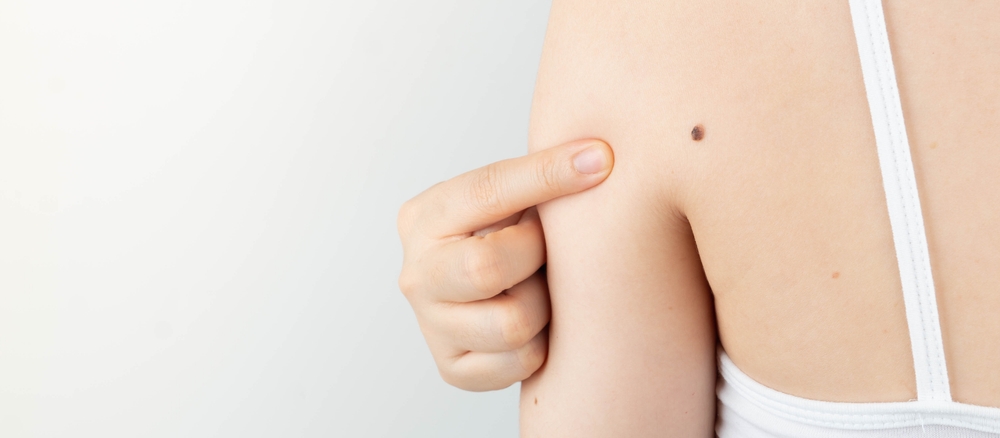Melanoma develops when the cells that give skin its color (melanocytes) grow out of control. It is a less common form of skin cancer, but it is also dangerous, as it is prone to spread.
What are the symptoms of melanoma spreading? Find out here.
What Are the Initial Warning Signs of This Type of Skin Cancer?
These include changes in the size, shape, or color of moles or pigmented areas, such as asymmetry, irregular borders, variations in color, and a diameter larger than a pencil eraser. Other signs include itching, tenderness, and / or bleeding of a mole.
How Is Melanoma Diagnosed and Treated?
Before we answer, “Where are the symptoms of melanoma spreading,” let’s take a quick look at diagnosis and treatment.
You should see a board-certified dermatologist for a full-body skin exam once a year or more often if you are at a high risk of melanoma. If you have a suspicious mole, be sure to have that checked immediately.
Melanoma diagnosis begins with a thorough examination of moles or skin lesions. If skin cancer is suspected, a biopsy is performed to confirm the diagnosis and determine the stage of the cancer.
Treatment options depend on the stage and may include surgical removal of the tumor, lymph node biopsy, chemotherapy, radiation therapy, targeted therapy, or immunotherapy.
Early-stage melanomas are often curable with surgery, while advanced cases require more aggressive treatment approaches to improve the outcome.
Where Are the Symptoms of Melanoma Spreading?
Metastatic (spreading) melanoma may present symptoms only in later stages, depending on where it has spread in the body.
The signs melanoma has spread show up in various parts of the body. It includes persistent cough or shortness of breath (lungs), headaches or seizures (brain), swelling of lymph nodes (lymph nodes), loss of appetite or unexplained weight loss (liver), and bone pain or unusual fractures (bones).
Don’t Put Your Health at Risk! Make THIS Call Today!
Call Acworth Dermatology & Skin Cancer Center at 678-505-8030 to schedule your full-body skin exam now.
It is an important step to safeguarding your health!



